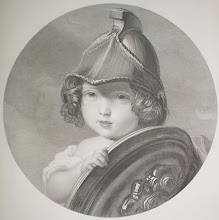NORTH East auctioneer Jim Railton has been fined £1000 after being charged over the sale of an Edwardian collection of birds’ eggs.
Mr Railton, who appeared in court for a second time last week following a joint investigation between Northumbria Police and The Royal Society for the Protection of Birds (RSPB), was told by magistrates that he should have known that the sale of any British wild bird egg is illegal regardless of its age.
Mr Railton, 57, an auctioneer of more than 30 years, fell foul of the law when he included an Edwardian oak four-drawer cabinet containing a collection of 54 birds’ eggs (estimate £30-40) at a sale on October 24-25 last year.
The RSPB received a tip-off from a member of the public and passed the details to Northumbria Police who sent two officers to the Old Narrowgate Salerooms in Alnwick to confiscate the cabinet during the viewing. They returned the following day to arrest Mr Railton who was subsequently charged with two counts under the Wildlife and Countryside Act of 1981. Specifically these were offering or exposing for sale wild birds’ eggs and (via the publication of a catalogue) advertising wild birds’ eggs for sale. The maximum penalty for selling wild birds’ eggs is up to six months imprisonment and/or a fine of £5000 per offence (the presence of 54 eggs in this cabinet could count as 54 offences).
Following a brief appearance at Alnwick Magistrates Court on March 10 when the case was adjourned, Mr Railton chose to plead guilty to the charges on his return on Wednesday, March 31 (just days before Easter, this was undoubtedly a story with a seasonal theme).
Christopher Brown, defending, said: “The court can recognise this is a technical breach of the law, and therefore an absolute discharge could be an adequate marking of this matter.”
James Long, prosecuting, successfully argued that as an experienced auctioneer, Mr Railton should have been aware of the law.
The Wildlife and Countryside Act makes no exception for the age of any wild bird’s egg entered into the stream of commerce, but chairman of the bench Terry Broughton clearly took the circumstances of this case into account in his summary, and this appeared to have an impact on sentencing: “As an auctioneer you should have known, and ignorance of the law is never a defence. However, the eggs were of some antiquity and you did not seek to buy them yourself.”
The magnitude of the fine was not in the same league as those imposed on previous occasions. Mr Broughton awarded a £1500 fine (plus £70 costs and a £15 victim’s surcharge), a sum reduced to £1000 because of Mr Railton’s willing cooperation in the case.
Four years ago Colin Peeke-Vout, the proprietor of Willingham Auctions in Cambridgeshire, was fined £6000 after offering for sale 69 wild birds’ eggs from a collection formed in the 1960s.
Mr Railton, who was not called to speak during the hearing, told representatives of the national media assembled outside the court that he remained dissatisfied: “It seems very harsh. I was expecting – and the general public was expecting – an absolute discharge. When this gets in the public domain, people will be very surprised.”
Further national media coverage of the sentencing illustrated just how much the case had caught the public’s interest.
To highlight what he sees as an anomaly in the law, Mr Railton went on to cite the observation made by ATG when the case was first reported in March: “I can sell a stuffed golden eagle, but if that eagle happens to have an egg in the case with it, it is illegal.”
James Leonard, investigations officer at the RSPB who had worked on this case, told ATG that the law had been written this way because there is no accepted way to determine the age of a bird’s egg. With reference to the Railton case, he said no irrefutable evidence had been offered to indicate the age of the eggs, although many were displayed alongside late 19th or early 20th century handwritten labels. “It is possible to forge data to suggest eggs are older than they actually are,” he said.
But, ultimately, Mr Leonard said the date of the eggs made no difference to the case against Mr Railton and he disagreed with the argument made by Mr Railton and others that a caution at the time of the sale last year might have been a better way to deal with the matter that has become a cause célèbre.
“This has not been a witch hunt,” he said. “The decision to prosecute was taken by the police in accordance with the Wildlife Crime Cautioning Guidelines. He [Mr Railton] is a person of professional responsibility.” Mr Leonard added that the fine imposed by the court, while inconsistent with previous sentencing, had affirmed the decision of the Crown Prosecution Service to bring the case.
The eggs and their oak cabinet, that Mr Railton asked to show the court (a request he was denied), will now be returned to the vendor. During their investigation, Northumbria Police had also interviewed Mark Goff, an NHS executive who had inherited the cabinet and its specimens from his mother, but he did not face any charges.
Mr Railton told ATG he was considering an appeal. He is hopeful that one of his many supporters in the legal profession who have offered their services for free may be willing to take up the case and challenge the law on his behalf.
But for now it is business as usual: Railton’s sale in Alnwick on April 10 includes the residual contents of Newton Hall, Newton on the Moor.
Wednesday, 7 April 2010
Subscribe to:
Post Comments (Atom)

No comments:
Post a Comment